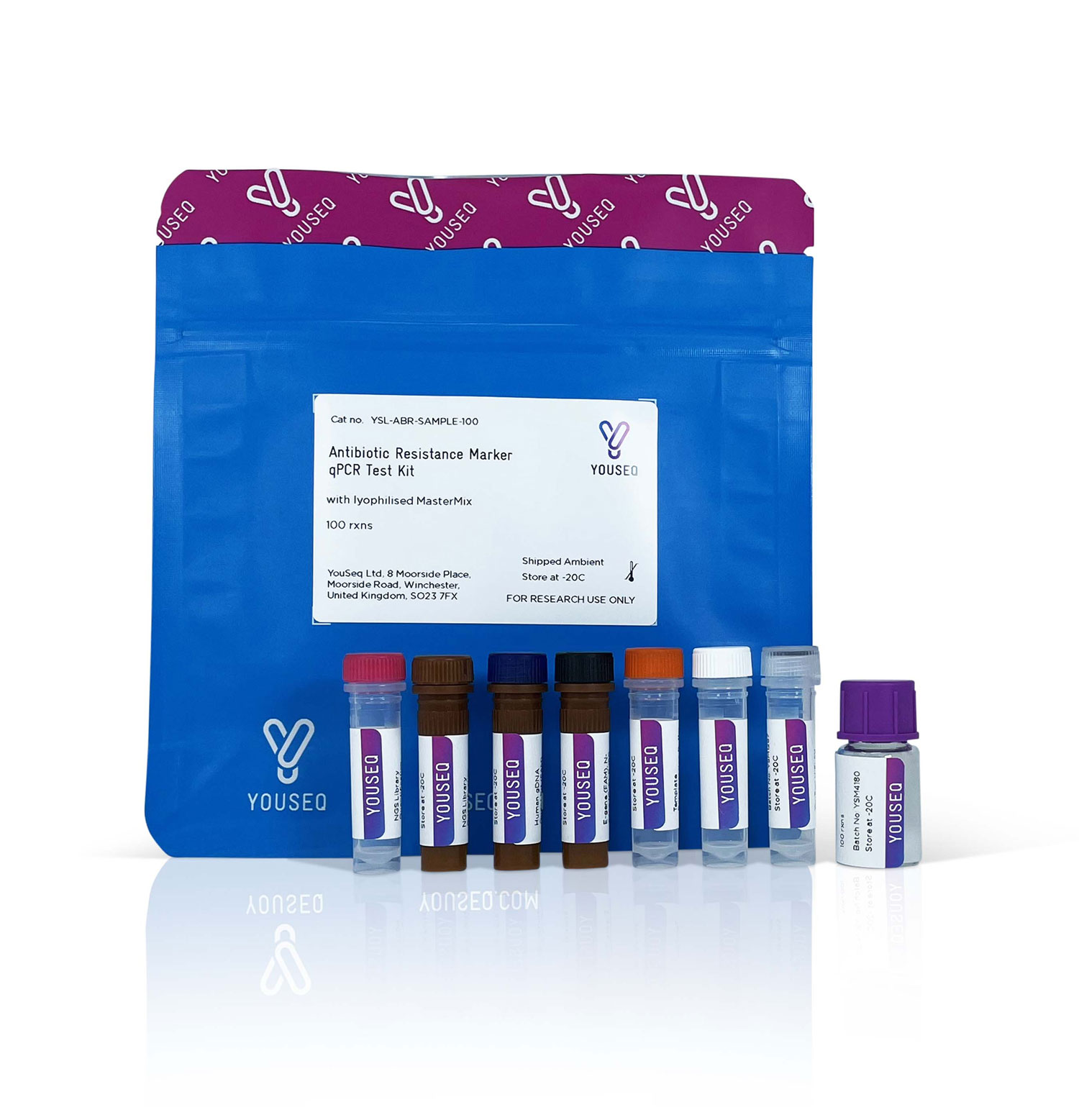
A complete qPCR kit for the detection of Macrolide Resistance
Macrolide resistance is a common bacterial mechanism in various pathogens such as Mycoplasma pneumoniae, Streptococcus pneumoniae, and Haemophilus influenzae, leading to treatment failures in respiratory tract infections in both humans and animals. Failure to detect macrolide resistance early can result in prolonged illness, increased treatment costs, and the spread of resistant strains within communities.
YouSeq's qPCR kit to detect macrolide resistance allows for rapid and accurate identification of resistant bacterial strains, enabling appropriate antibiotic therapy selection and reducing the risk of treatment failure. Early detection of macrolide resistance can help improve patient outcomes, reduce healthcare costs, and prevent the further spread of resistant pathogens in clinical, veterinary, and community settings.

Price on enquiry
Order nowFor Research Use Only. Not intended for diagnostic use.
Contents
Endogenous control primer/probe
qPCR MasterMix
Positive control template
DNase/RNase free water
Template resuspension buffer
ROX passive reference
Technical specification
Efficiency: 90-110%
Run Time: Approx 1hr30 (dependent on instrumentation)
Target Marker: FAM labelled
Endogenous Control: VIC/HEX labelled
Product variants
YS-ABR-MefA-100 : Frozen version for dry ice shipping
Pseudonyms
Streptococcus pneumoniae; Strep pneumo; Pneumococcus; S. pneumoniae; Pneumonia bacteria; Streptococcal pneumonia; Streptococcal infection